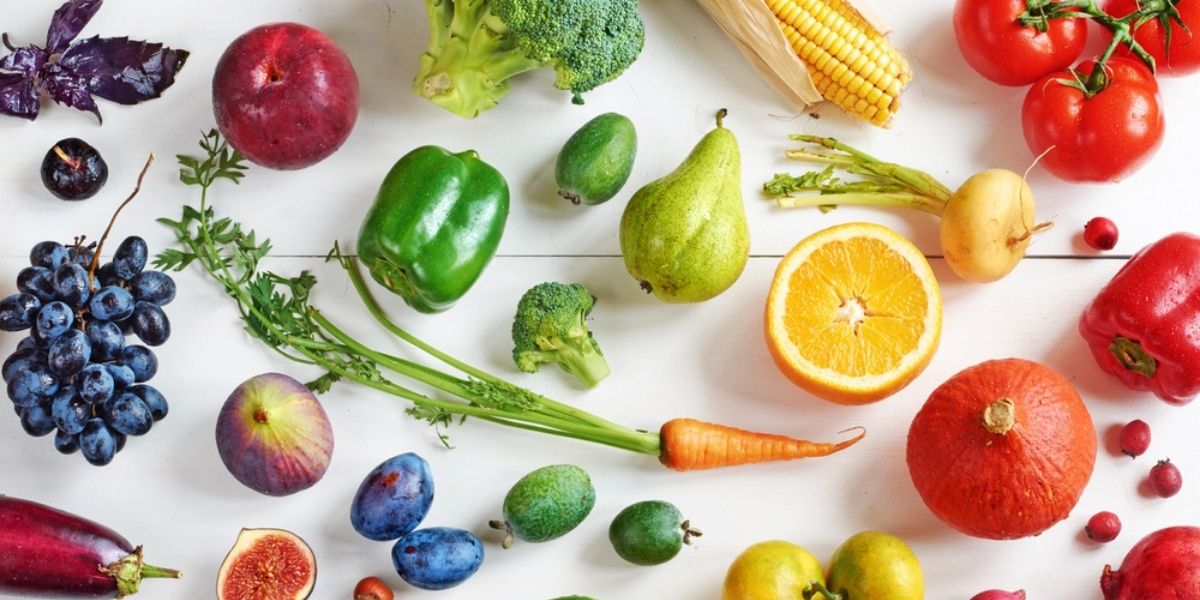
A plant-based recipe to celebrate great chefs around the world
This International Chef's Day, we're raising a fork to the hard-working and passionate chefs across the world, including Le Cordon Bleu chefs in training, ...

It’s not just what you eat, it’s how you eat it.
Incorporating more raw foods into your diet is not only beneficial for your health, but it is also a smarter way to eat. Cooking or heating is beneficial for some foods to be digested well or bring out key nutrients. For other foods however, the more you cook the food, the more you breakdown it’s nutrients which could have instead been processed and absorbed by the body; creating a higher energy content in the food rather than maintaining its nutrient density.
Maximise the amount of nutrients you are absorbing from your food by adding these five raw foods to your diet:
Commonly listed as one of the top five healthiest vegetables you can eat, broccoli is full of nutritional benefits essential to a healthy body. According to Healthline, “one cup (91 grams) of raw broccoli provides 116% of your daily vitamin K needs, 135% of the daily vitamin C requirement and a good amount of folate, manganese and potassium 1”.
A key compound of this superfood is called sulforaphane, which activates the body’s detoxifying enzymes to help fight cancer cells and influence a number of benefits such as lowered blood pressure, healthy blood-sugar levels, immunity-boosting antioxidants, improved heart health and anti-ageing properties. Studies have shown that raw broccoli can contain up to ten times more sulforaphane than cooked broccoli 2. Eating broccoli enables you to absorb higher amounts of this superfood compound faster, allowing you to gain the benefits which are otherwise significantly reduced when consuming broccoli cooked.
“One of the superfoods that isn’t talked about very much but is the king of nutrient density is a beautiful humble green: watercress”, says the award-winning nutritionist and Gastronomy & Nutrition lecturer, Chef Samantha Gowing. “We should all be having more sprouts, watercress and all those lovely living leaves, they are so healthy for us.”
Watercress is another member of the cruciferous family, alongside broccoli, which contains important enzymes that are damaged when heated 3. When watercress is eaten raw, the potency of its many helpful anti-cancer compounds (called phytochemicals) are maintained and absorbed by the body, allowing you to gain the full benefits of this underrated leafy green.
Does the thought of eating a raw onion bring tears to your eyes? Onions contain a powerhouse of nutrients, including vitamin C, antioxidants, fiber, flavonoids, and sulfuric compounds. The enzymatic reaction of the sulfuric compounds is the reason why we tear up when cutting an onion, but they are also what makes a raw onion superior to cooked onions. 4 The benefits of sulfuric compounds in raw onions include reducing the level of cholesterol in the body, promoting insulin production, as well as helping breakdown blood clots which help lower the risk of stroke, heart disease and diabetes. 5

Garlic is another pungent food which contains special sulfuric compounds. Offering a variety of health benefits, such as aiding balanced blood sugar levels, brain health, improved memory, supporting healthy cholesterol levels and heart health, garlic is mostly known for its high level of antioxidants. Studies have shown that the antioxidants and sulfuric compounds in garlic may help boost the immune system and decrease inflammation 6. Raw garlic contains higher amounts of these anticarcinogenic (anti-cancer) sulfuric compounds and according to studies 7, cooking can destroy these beneficial elements.
Capsicums (bell peppers) contain nearly three times your daily vitamin C intake, as well as being packed full of vitamin B6, vitamin E, magnesium and antioxidants. Capsicums are a nutritious and tasty option whether they are eaten cooked or raw, however a few of the capsicum’s key nutrients are affected by heat. A study found that red capsicums lose up to 75% of their antioxidants when cooked, as well as a 15-40% reduction in their fibre content when heated 8. The B and C vitamins are also water-soluble and degrade with heat, so adding raw capsicums to your diet may boost the nutritional value compared to cooking them.
Copyright © 2025 Le Cordon Bleu International B.V. All Rights Reserved.